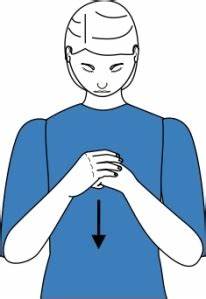Special Needs and Accessibility for All

The Deaf Community
Resources for the Parish ~
Deafness/Deaf Culture:
Across all age groups, approximately 600,000 people in the United States are Deaf (Gallaudet University). Many people do not consider Deafness to be a disability. Since Deaf people have their own language with distinctive cultural and linguistic features, many Deaf people consider their communicative abilities to be fully thriving. In our Church today, there are ordained priests and deacons that are Deaf, Deaf Catholic Pilgrimages, and homilies available in American Sign Language online.
While accessibility for the Deaf community is becoming more common within the Church, there is still an urgent need for improvement! The National Catholic Office for the Deaf estimates that 96% of Catholics are unchurched. Even though Deafness is not always considered a disability, the National Catholic Partnership on Disability still engages in the topic of Deafness because the Church desires the meaningful participation of Deaf people. NCPD stands with NCOD in the belief that parishes and dioceses can implement practical initiatives to ensure that Deaf Catholics are meaningful participants in the life of the Church. Captioned Videos, Sign language interpreters, and Deaf Masses are all initiatives that can promote this meaningful participation.
Overview of Assistive Listening Systems
Liturgical Access for People with Hearing Loss
Policy for Working with Sign Language Interpreters in Catholic Settings (From National Catholic Office for the Deaf)
Article: How Can Churches be More Accessible to People who are Deaf or Hard of Hearing
Parishes offering ASL interpretation of the Mass:
- St. Timothy Catholic Church in Mesa – Offering Sunday Mass and Confession – Click here to learn more about the St. Timothy Deaf Ministry
The New Roman Missal for ASL Interpreters – Series of YouTube ideos from the Archdiocese of Washington
Book : Religious Singing – Elaine Costello
Presentation: Interpreting the Mass – Archdiocese of Boston
Resources for the Deaf Community ~
Guidelines for the Celebration of the Sacraments with Persons with Disabilities (USCCB)
#30. Catholics who are deaf should have the opportunity to confess to a priest able to communicate with them in sign language, if sign language is their primary means of communication. They may also confess through an approved sign language interpreter of their choice.37 The interpreter has the obligation to observe secrecy.38 When neither a priest with signing skills nor a sign language interpreter is available, Catholics who are deaf should be permitted to make their confession in writing or through the use of an appropriate portable electronic communication device that can be passed back and forth between the penitent and confessor. The written or digital materials are to be returned to the penitent and properly destroyed or deleted
Guidelines for the Celebration of the Sacraments with Persons with Disabilities (USCCB)
#45. Catholics who are deaf are to be offered the opportunity to express their matrimonial consent in sign language, if sign language is their primary means of communication.55 Marriage may also be contracted with the assistance of a sign language interpreter whose trustworthiness has been certified by the pastor.56 Likewise, those who are nonverbal or have minimal verbal communication ability should be offered the opportunity to express their matrimonial consent using the communication system with which they are most fluent.
Father MD’s Kitchen Table is a series of Sunday reading reflections communicated in ASL. Click here to go to the website.
